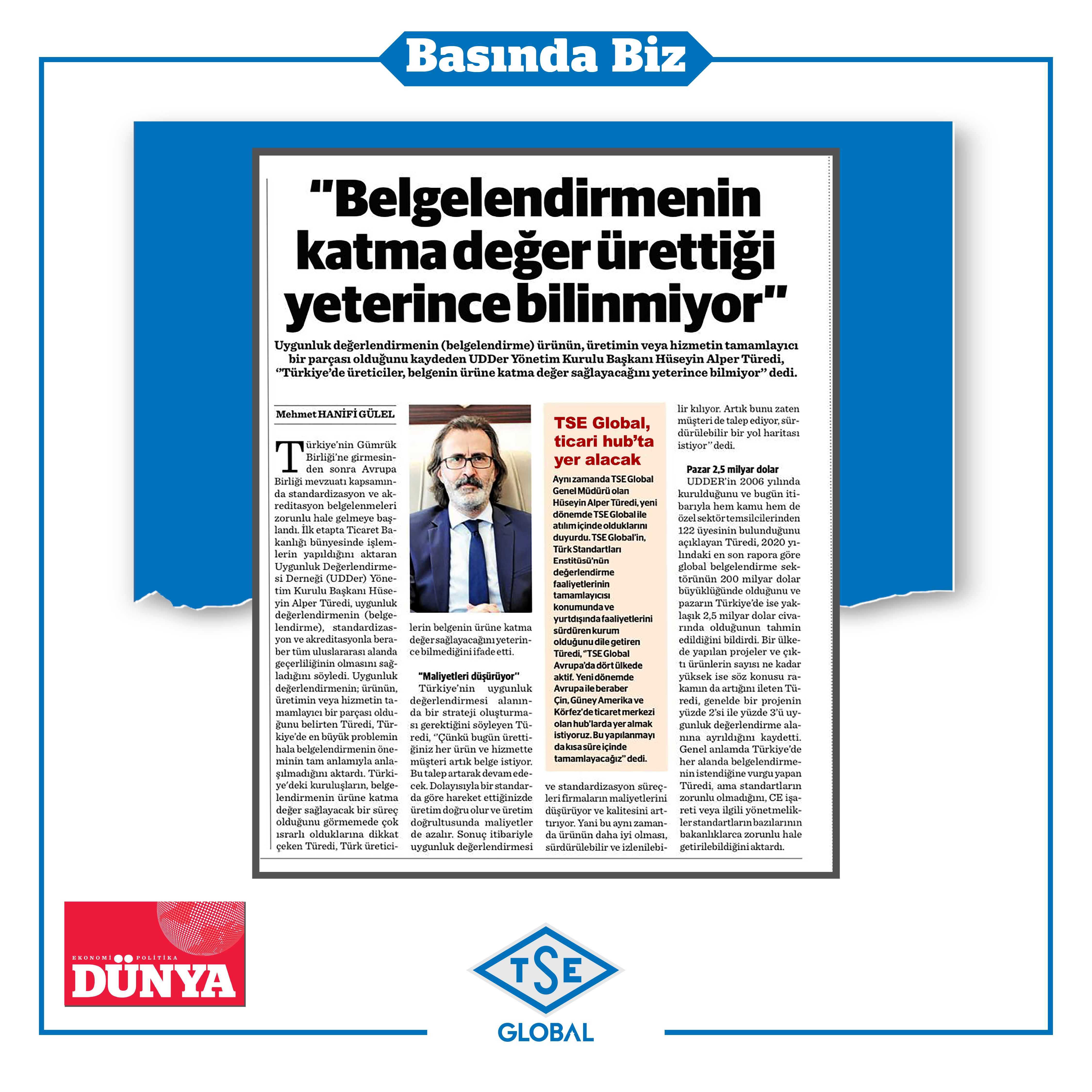Hüseyin Alper Türedi, Chairman of the Board of UDDer, noting that conformity assessment (certification) is a complementary part of a product, its production or service, said, “Producers in Turkey do not sufficiently understand that certification will add value to the product.”
After Türkiye entered the Customs Union, standardization and accreditation certifications began to be required under European Union legislation. Türedi explained that in the initial phase these procedures were handled under the Ministry of Trade. He emphasized that conformity assessment (certification), together with standardization and accreditation, ensures that products have validity in all international arenas.
Stating that conformity assessment is a complementary part of the product, its production or its service, Türedi said the biggest problem in Turkey remains that the importance of certification has not been fully appreciated. He drew attention to how institutions in Turkey persistently fail to see certification as a process that adds value to products. He stressed that Turkish producers do not adequately recognize the value certification brings to their products.
“It Reduces Costs”
Türedi said Turkey needs to formulate a strategy in the field of conformity assessment, because “Today, for every product and service you produce, the customer now requests certification. This demand will continue to grow. Therefore, when you operate according to a standard, production is done correctly, and along this path, costs decline. Ultimately, the processes of conformity assessment and standardization reduce companies’ costs and increase their quality. In other words, this also makes the product better, sustainable, and traceable. Customers already demand this—they want a sustainable roadmap.”
Market Size: 2.5 Billion Dollars
Türedi explained that UDDer was founded in 2006, and as of today it has 122 members drawn from both the public and private sectors. According to the latest report from 2020, the global certification sector is valued at USD 200 billion, and the market in Turkey is estimated to be approximately USD 2.5 billion. He noted that in any country, the more projects carried out and the greater the number of output products, the larger these figures become. He added that generally around 2–3% of a project’s budget is allocated to the field of conformity assessment. While emphasizing that certification is requested across all fields in Turkey, he also said standards are not always mandatory: in some cases, standards may be made compulsory by ministries, through CE marking or relevant regulations.
TSE Global to Be Part of a Commercial Hub
Also serving as General Manager of TSE Global, Türedi announced that the organization is preparing to make a leap in the coming period. He described TSE Global as complementary to the evaluation activities of the Turkish Standards Institution, and an institution that operates abroad. “TSE Global is active in four countries in Europe. In the new period, together with Europe, we aim to operate in trade hubs in China, South America, and the Gulf region. We will complete this organizational structure within a short time,” he said.




